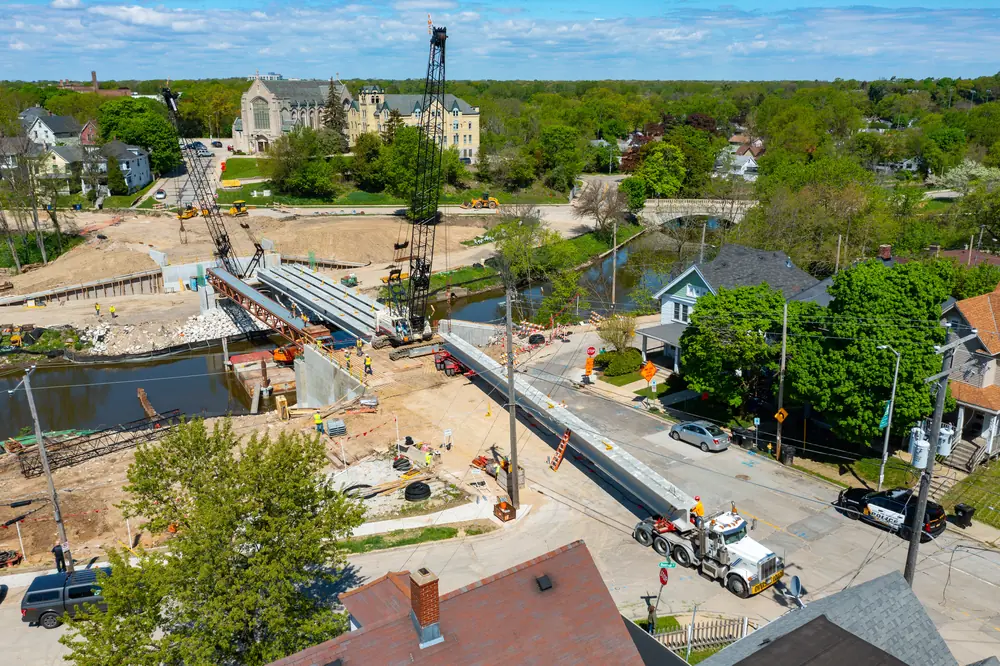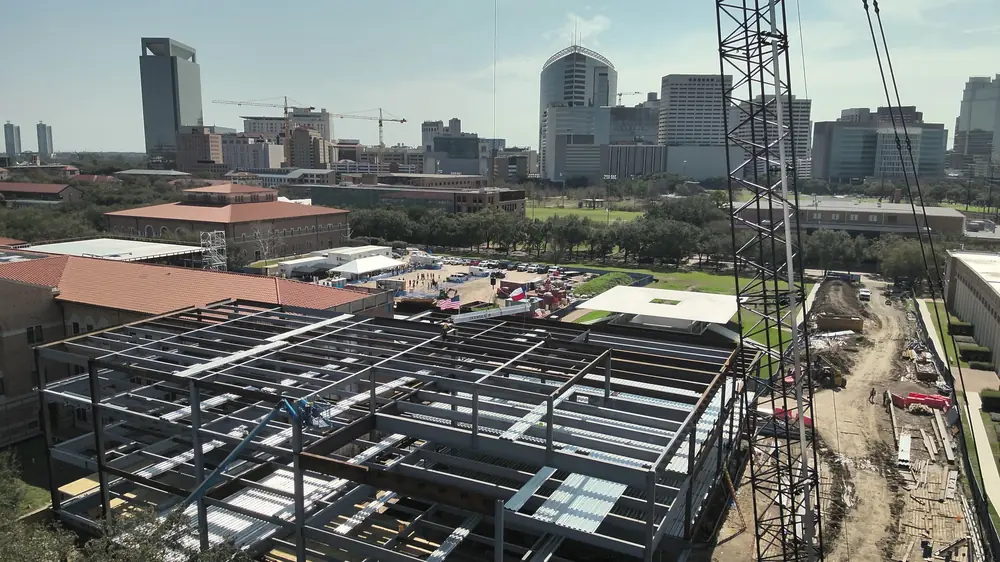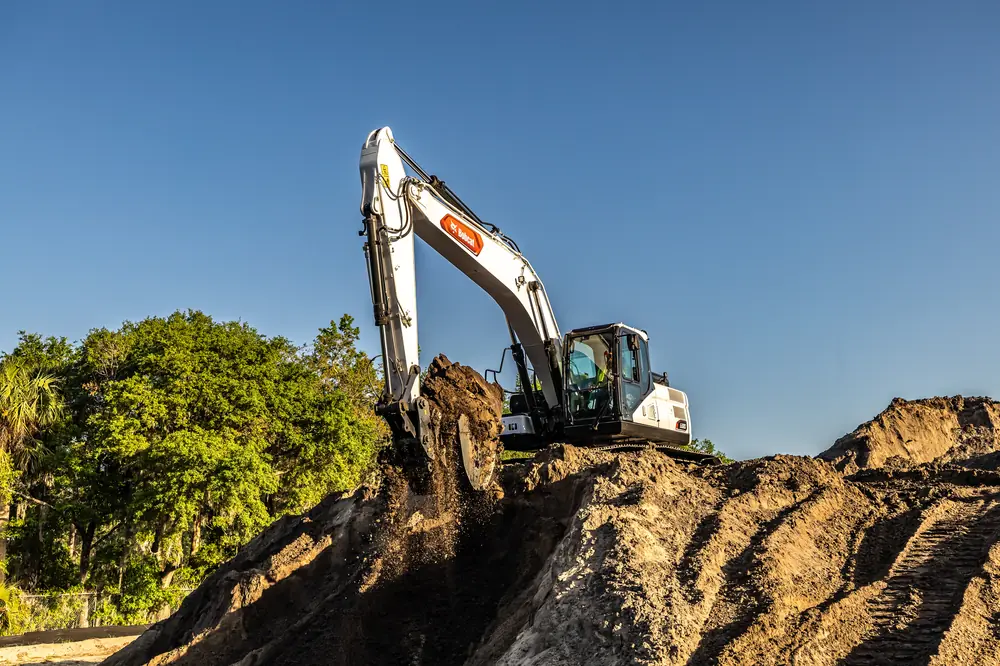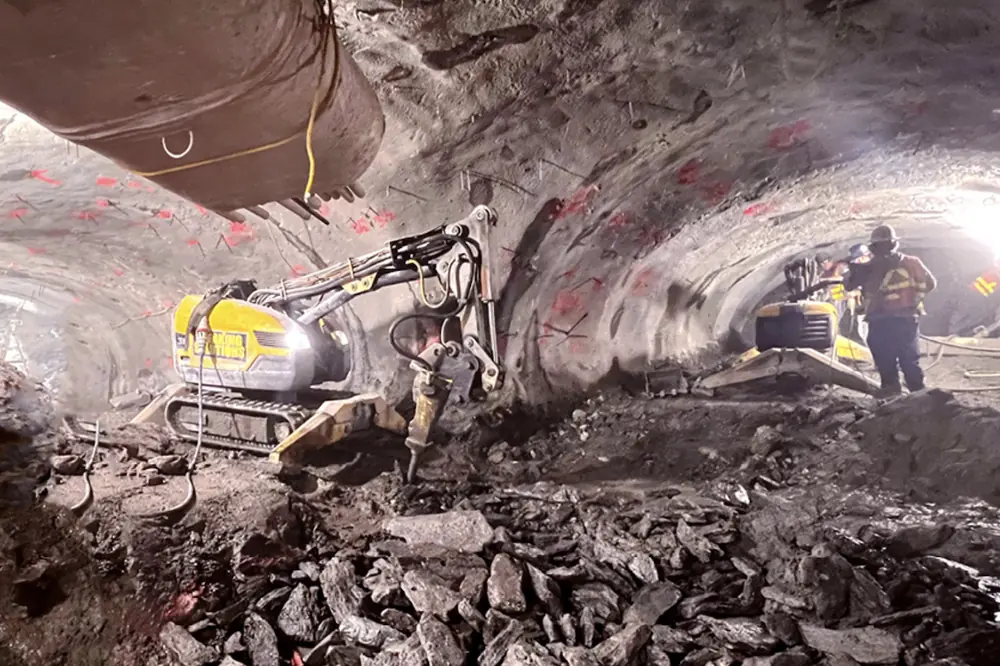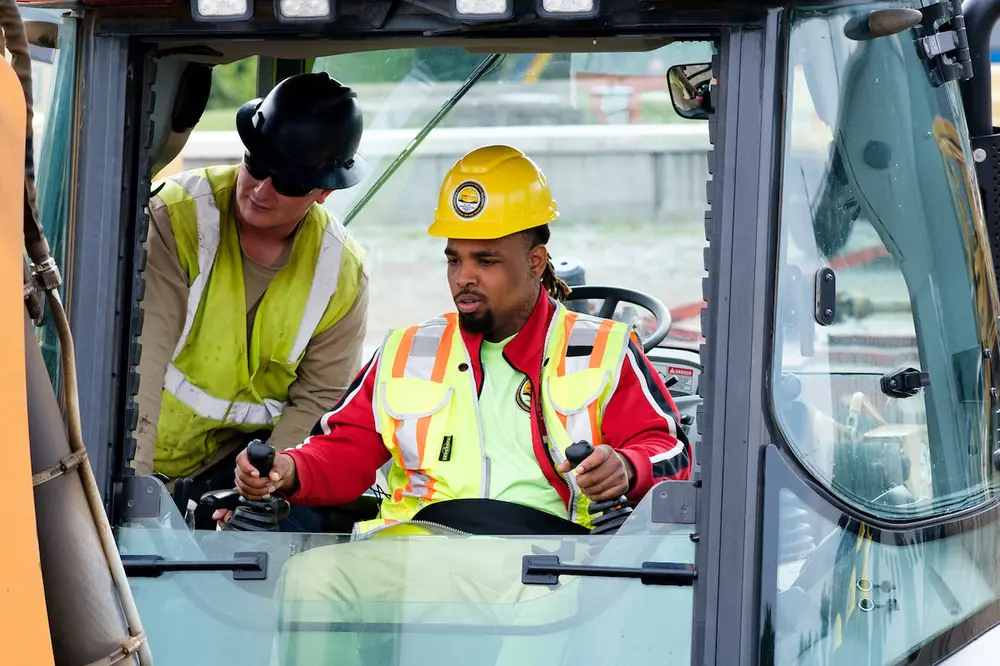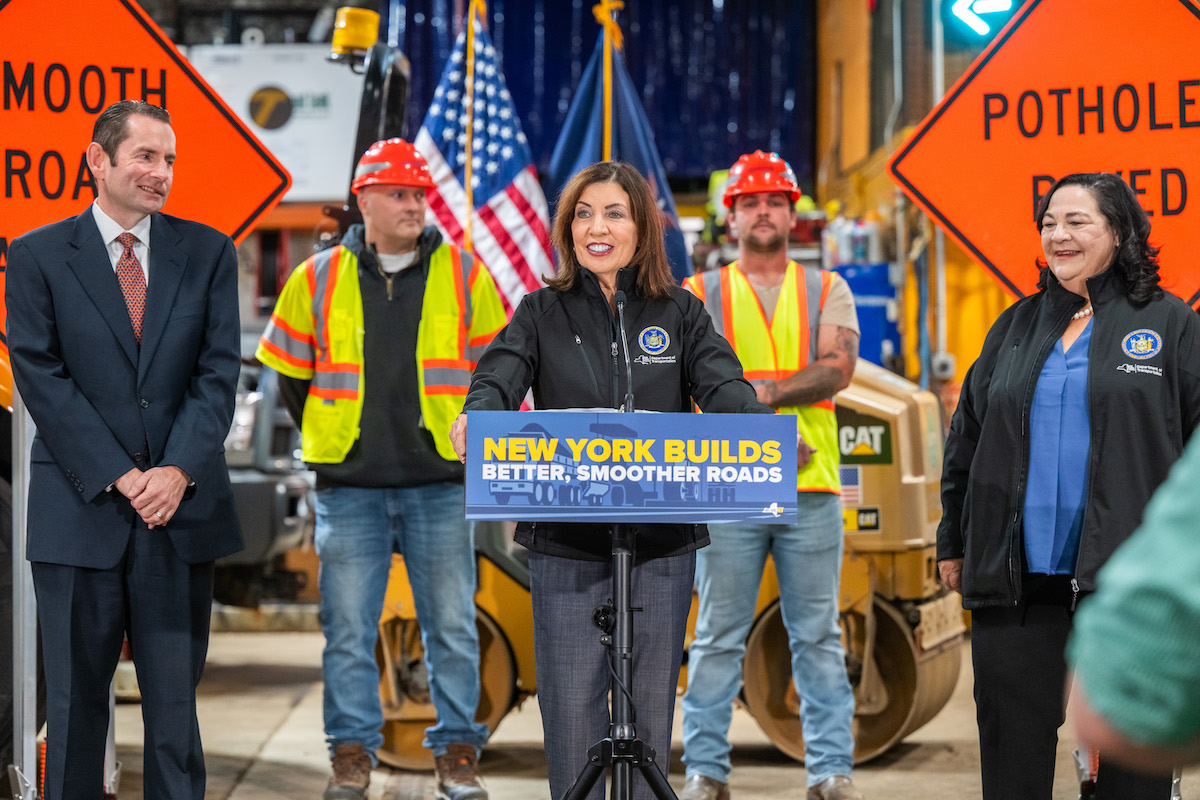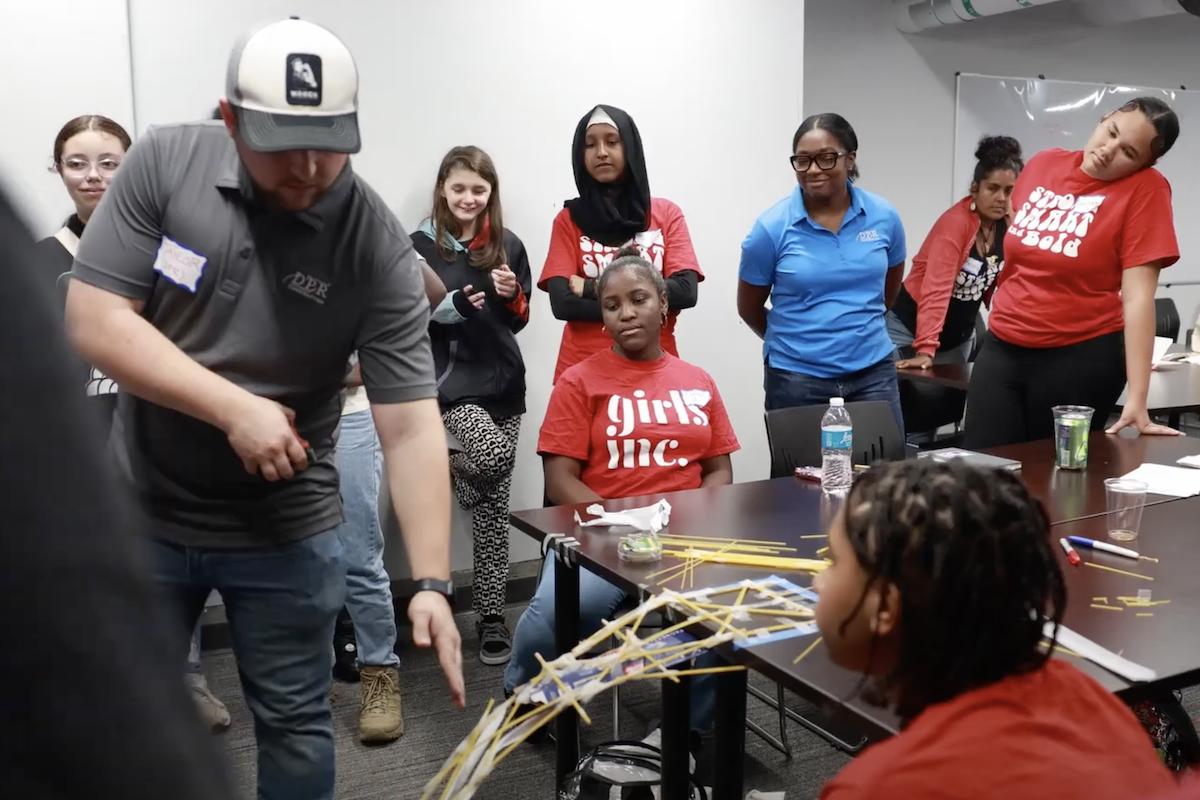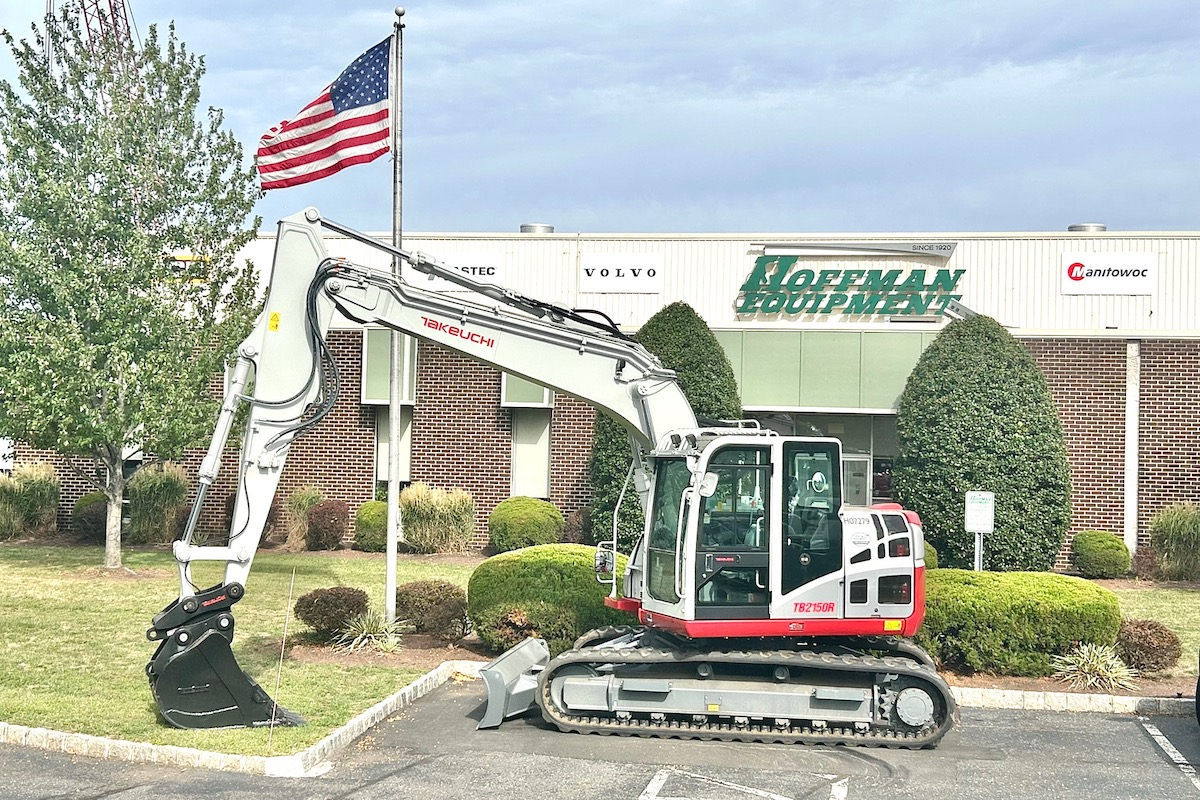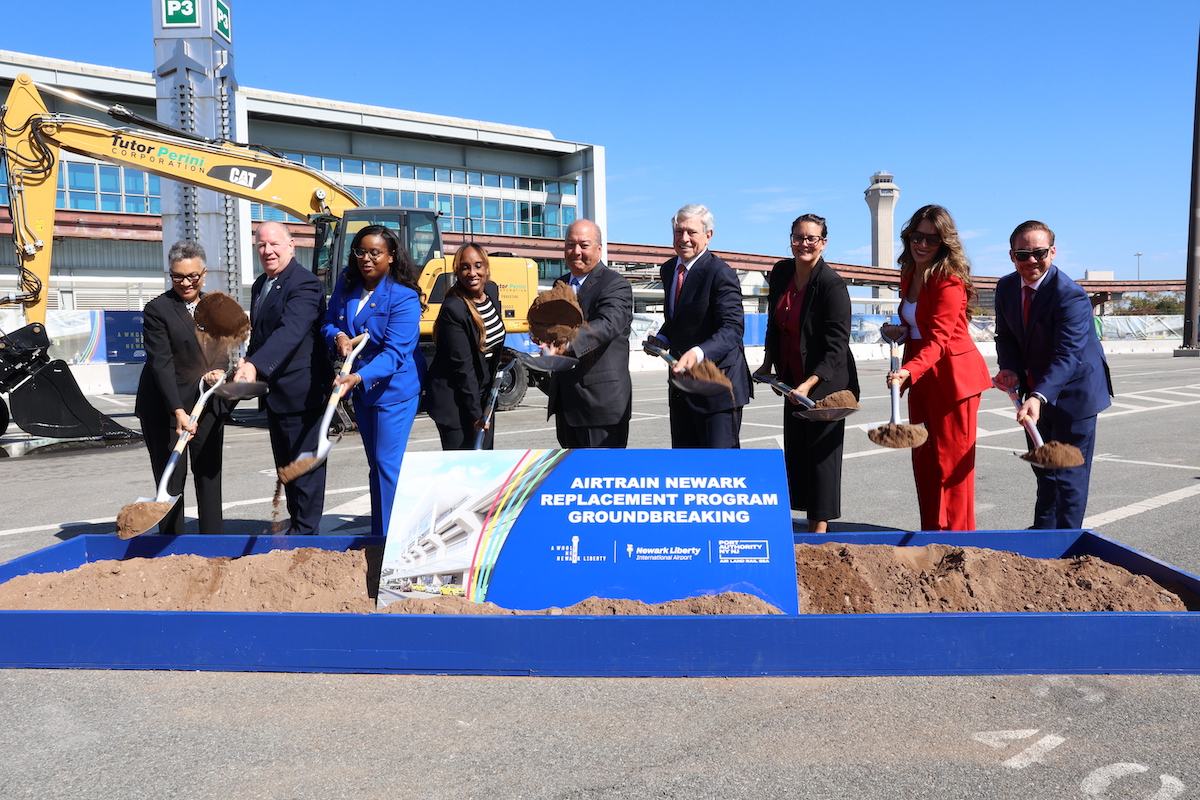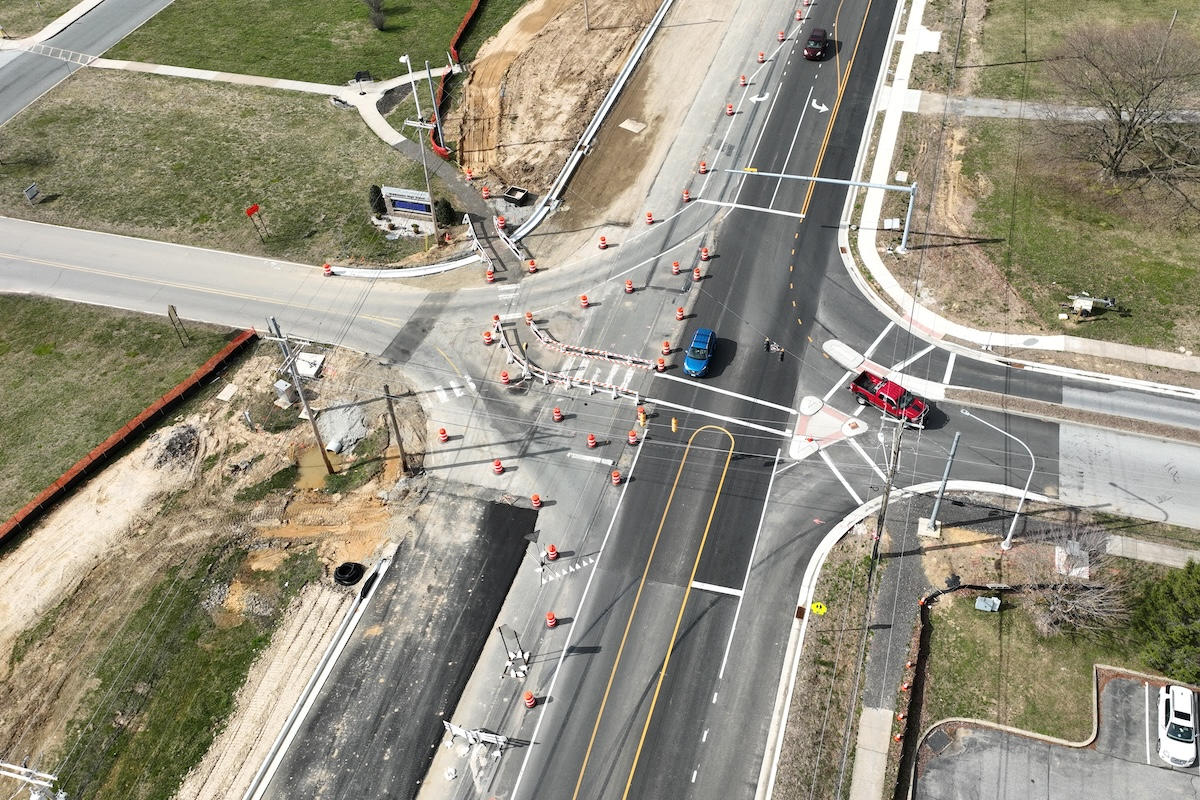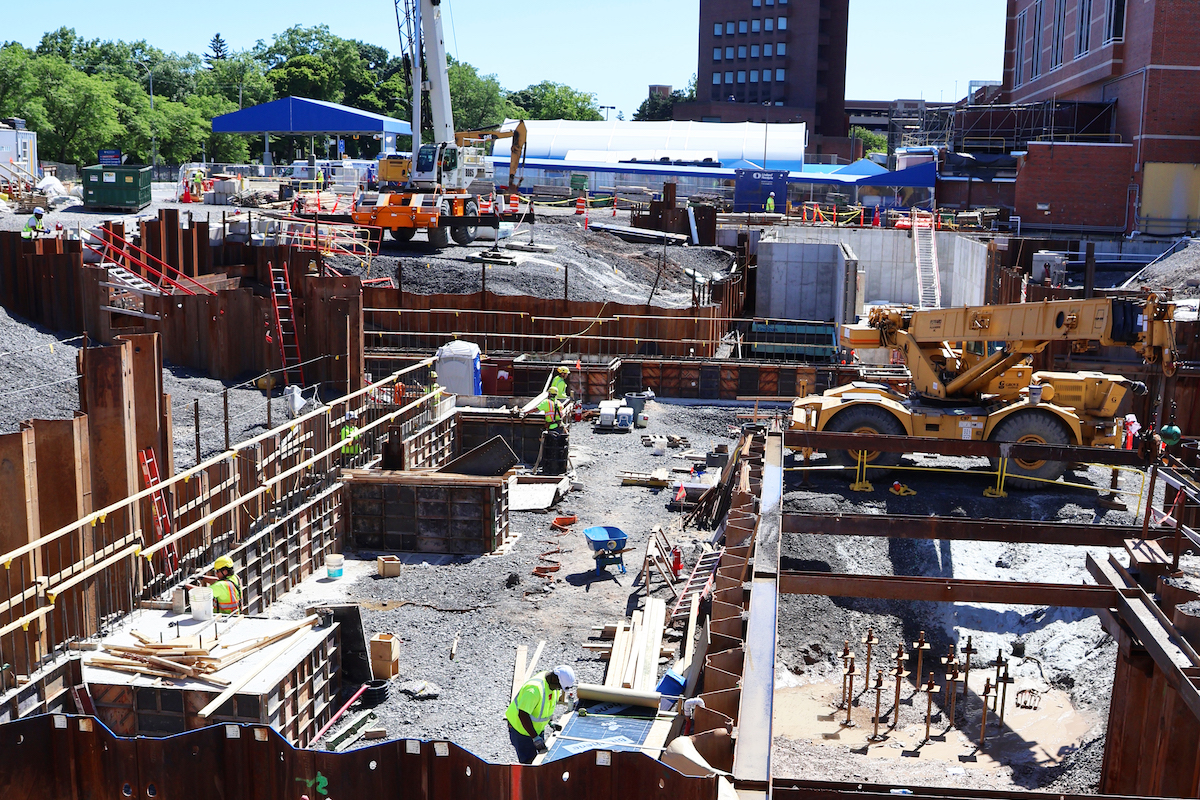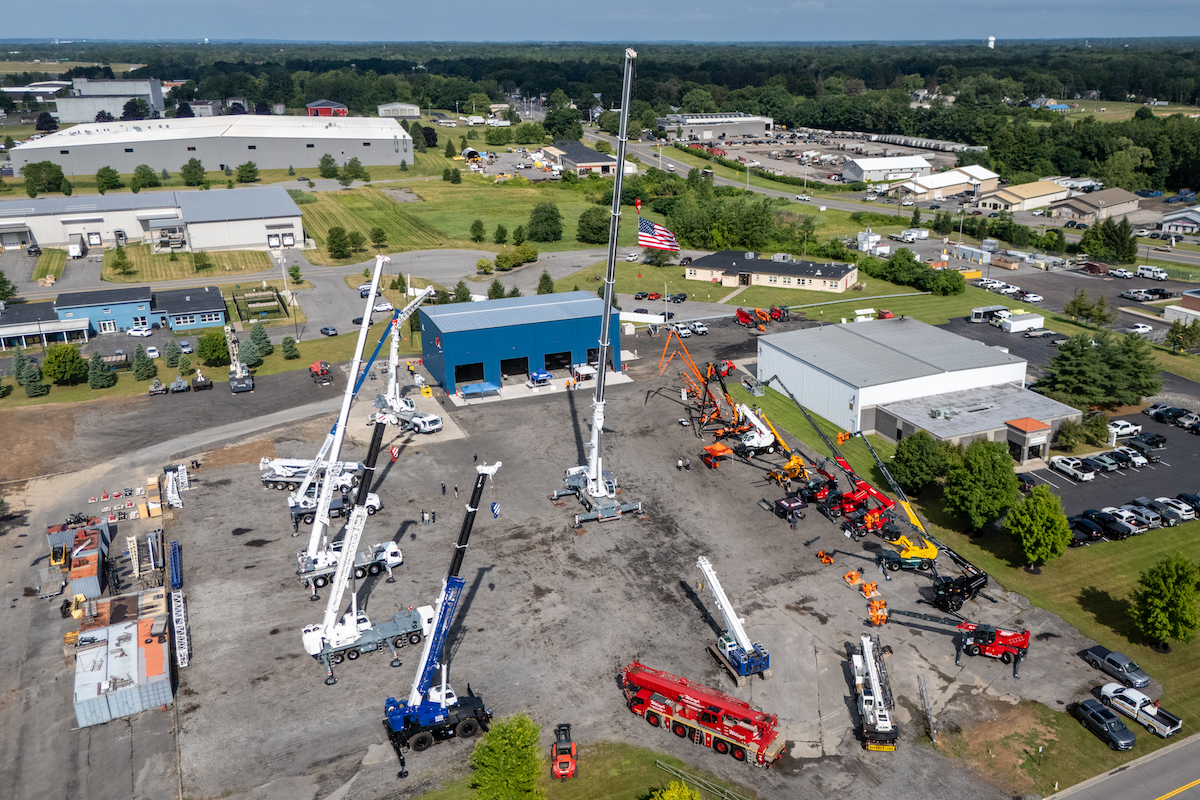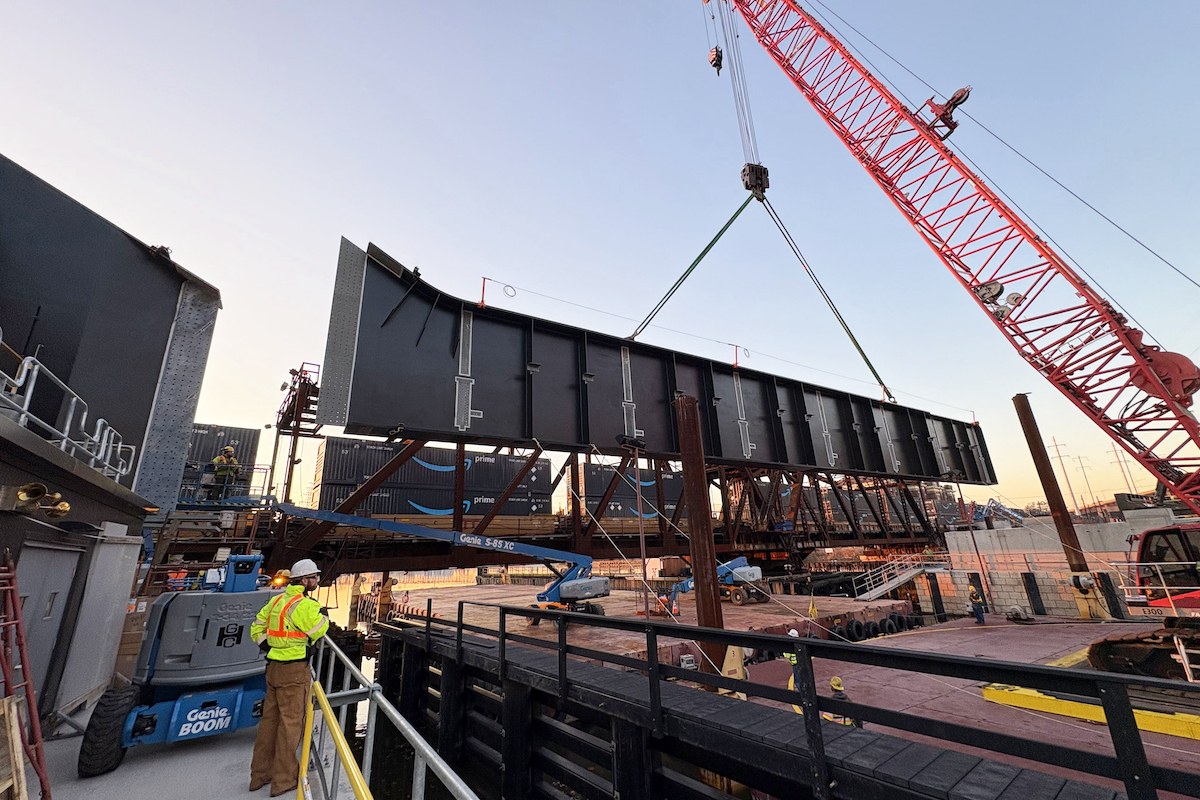As much as I hate to sound like a broken record, the reality is that finding, hiring, and retaining construction workers continues to be a struggle for an overwhelming majority of contractors.
Approximately 94 percent of firms said they’re struggling to fill openings in the 2024 Workforce Survey conducted by the Associated General Contractors of America and Arcoro. In turn, 54 percent of respondents have experienced project delays and 80 percent reported having at least one project canceled, scaled back, or postponed.
If you’re serious about getting ahead in the war for construction talent, consider doubling your efforts to hire from military and veteran populations.
The U.S. Department of Labor estimates that 200,000 service members transition to civilian life every year. But only a small fraction of former military personnel — about 6.3 percent or 12,600 — hold construction roles.
That’s quite a bit of opportunity if you ask me.

| Your local Trimble Construction Division dealer |
|---|
| SITECH Allegheny |
| SITECH Northeast |
And if you ask me again, I’ll tell you that veterans are well-equipped with the skills and qualities needed to thrive in construction roles. The military ingrains leadership, teamwork, work ethic, discipline, adaptability, and accountability into its people. Perhaps most important of all, military service trains you to be safety-first and to always think about the health and safety of your comrades.
The military and organizations like Hiring Our Heroes, Helmets to Hardhats, and Hard Hat Heroes work hard to help service members transition out of active duty and into the civilian sector.
Even so, there are nuances and challenges along the way that can trip people up — as much on the recruitment side as on the job-seeking side.
Military branches employ a variety of technical positions with experience that can be transferred to the construction sector. Air Force Specialty Codes (AFSC), Military Occupational Specialty (MOS), Navy Enlisted Classifications (NEC), and Coast Guard Ratings are code systems that categorize professions within different military branches. Take, for example, a heavy construction equipment operator (21E), combat engineer (12B), and technical engineering specialist (21T).

| Your local Trimble Construction Division dealer |
|---|
| SITECH Allegheny |
| SITECH Northeast |
Unfortunately, both veterans and hiring companies commonly struggle with translating service language into language that resonates in the private business sector.
If recruiting military veterans is a priority for your company, take deliberate action to ensure these candidates don’t slip through the cracks. Using plain-spoken language in job postings and avoiding jargon will help remove some of these barriers. You may also consider consulting with a recruiter familiar with veteran job placement who can advise on the best ways for your business to enhance the job-seeking experience for transitioning service members and veterans. When reviewing resumes, keep in mind that there may be more to this candidate than they’ve expressed on paper.
As recruiting software, such as applicant tracking systems (ATS), advance and integrate AI capabilities, they will get better at parsing verbiage, phrases, and keywords that may have previously put talent from a military background at a disadvantage. For example, Military.com offers a “Military Skills Translator” that integrates with an ATS to match veterans with job opportunities based on their AFSC, MOS, NEC, or Rating.
I served in the United States Air Force for over a decade. I can tell you from personal experience that the transition to the private workforce was a big adjustment, and there are still some things I’m actively working on 20 years later.

| Your local Trimble Construction Division dealer |
|---|
| SITECH Allegheny |
| SITECH Northeast |
Veterans have a lot of value to offer the construction industry. Organizations and leadership teams must proactively build work environments that support and leverage these workers’ unique backgrounds and skills to ensure they thrive in their new roles.
Establish Clear Career Paths
For instance, military members are accustomed to highly structured environments that are heavily focused on a chain of command. Promotions have clearly defined timelines, with specific ratings determining who moves up the ranks. In the Air Force, those who enlist as Airmen Basic will work their way to Airman, then Airman First Class, then Senior Airman, then Staff Sergeant, and so forth.
The private sector is often less linear, which can be challenging for many veterans who have spent a significant chunk of their lives shaped by military ranks. Construction firms that map out different career trajectories and establish clear objectives for attaining promotions will position their veteran employees with the resources they need to plan their futures.
Performance management systems are a type of human resources software that companies can use to provide a structured career roadmap with built-in feedback loops. These systems capture information about employee goals and performance and can help both individuals and supervisors with data-backed professional development.

| Your local Trimble Construction Division dealer |
|---|
| SITECH Allegheny |
| SITECH Northeast |
Inspire Communication
Construction jobs have clear protocols and targets that create a familiar environment for former military employees. Servicemen and servicewomen are used to receiving and fulfilling orders, making them well-suited for completing tasks on a job site. However, the military is much more rigid when it comes to communication, and military veteran workers may be hesitant to “push back” on their supervisor’s directions, even if collaboration and innovation are a central part of the company culture.
Managers and supervisors need to continually emphasize that ideas are welcome and can come from anywhere. This is especially pressing when it comes to construction safety. While military members are used to looking out for the well-being of their fellow team members, there should be no pause for them to raise issues or questions.
Additionally, team leaders should be mindful that veterans perform exceptionally well when they have clear guidance on tasks. As these employees take on new or additional responsibilities, supervisors should proactively monitor worker satisfaction and encourage them to ask for support without fear of repercussions.
I strongly advise companies to take note of this advice. When people sign up to serve in the armed forces, they’re committing to a four-year term with no exit strategy except finishing their required time. This is an obvious shift from the private sector, where employees have greater freedom to leave if they are unhappy at a company. Between how unnatural it can feel to push back on authority, hesitation to vocalize ongoing issues or struggles, and the unrestricted ability to resign, some employees may decide that the path of least resistance is to find a new job.

| Your local Trimble Construction Division dealer |
|---|
| SITECH Allegheny |
| SITECH Northeast |
Foster Community
Camaraderie is a pillar that carries service members through the toughest of times throughout their years in service. Companies should prioritize fostering a similar sense of community and belonging within their organizations to help veterans with job satisfaction.
Consider establishing a veterans resource group (VRG) led by team members with a service background. VRGs can recreate the sense of camaraderie many find in the armed forces. They also demonstrate a company’s values and commitment to supporting veterans.
Hiring veterans is a viable way to enrich your workforce and offer career opportunities to a group of people who already possess the skills and experience sought after in the construction industry.
Several organizations are devoted to helping men and women find professional opportunities in the civilian workforce. In addition to offering individuals resources like resume review and career coaching, many of these organizations partner with companies to connect recruiters with quality candidates.

| Your local Trimble Construction Division dealer |
|---|
| SITECH Allegheny |
| SITECH Northeast |
These organizations include:
- Helmets to Hardhats — Since 2003, Helmets to Hardhats has helped over 40,000 military personnel find trades careers. The organization partners with trade unions and offers earn-while-you-learn apprenticeship training programs.
- Hiring Our Heroes — Launched by the U.S. Chamber of Commerce Foundation in 2011, Hiring Our Heroes connects transitioning service members, veterans, and military spouses with civilian businesses. The organization hosts dozens of hiring events annually and offers fellowship, workshop, and networking opportunities across various sectors.
- Hard Hat Heroes — Through the Build Your Future military initiative, the National Center for Construction Education and Research (NCCER) helps veterans receive NCCER credentials for the skills and training they received during their service. Hard Hat Heroes matches veterans with industry-recognized credentials based on their AFSC, MOS, NEC, or Rating.
- Work for Warriors — This organization assists transitioning service members, veterans, and their families with career placement in California. It offers resume and interview tips, training and education opportunities, and access to an online job board.
By partnering with veteran-focused organizations, you not only expand resources and opportunities for the men and women who served our country or currently serve as a reservist or National Guard member, but also showcase your company's commitment to supporting veterans and fostering a more diverse workforce — both for existing and potential employees.
Demetrius Austin is the Senior Vice President of Engineering, Integrations, at Arcoro, a human resources software company for the construction and field services industries. Prior to his career in the private sector, he served in the U.S. Air Force for over a decade. Connect with him on LinkedIn and learn more at arcoro.com.



